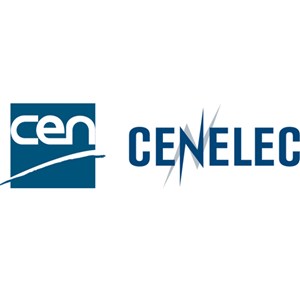The Standards Council of Canada (SCC), the European Committee for Standardization (CEN) and the European Committee for Electrotechnical Standardization (CENELEC) have renewed our cooperation agreement for a fourth time.
This reaffirms our commitment to working together as like-minded partners, strengthening the international standardization system under the leadership of ISO and IEC, as well as collaborating on topics of common interest.
For more than a decade, we have worked together to strengthen the role of voluntary, consensus-based standards in enabling regulation, supporting market access and advancing the public good.
Together, we actively contribute to the work of the EU-Canada Regulatory Cooperation Forum, a subcommittee under the EU-Canada Comprehensive Economic and Trade Agreement (CETA), which plays an important role in fostering cooperation between Canadian and EU regulatory authorities. Topics addressed under this forum by CEN, CENELEC and SCC include AI/data, sustainability, and hydrogen.
Through this cooperation model, we also support the EU-Canada Digital Partnership, an initiative launched in November 2023 to improve the functioning of the digital economy, including joint efforts on AI international standards and coordinating positions in ISO and IEC.
This agreement also complements SCC’s Companion Standardization Body status with CEN, which provides SCC full and direct access to CEN standards for review or adoption. It also allows Canadian experts to contribute as observers to the work of European Technical Committees. This status supports the adoption of European standards as National Standards of Canada and strengthens interoperability between the Canadian and European standardization systems. It also contributes to more predictable and efficient market access and trade between Canada and the EU.
The value of standards, interoperability and their role in trade
Standards are the foundation of trust in markets. They ensure quality, safety and reliability across products, services and systems, supporting innovation and protecting consumers. By fostering interoperability – the seamless interaction between technologies, organizations, and sectors –, standards drive efficiency, reduce costs and enable the adoption of new solutions on a global scale. In international trade, international standards help remove technical barriers, facilitate market access and promote fair competition, allowing businesses of all sizes to participate in the global economy.
CEN, CENELEC and SCC recognize the strategic importance of standards in supporting sustainable growth and innovation. Through our cooperation, we are working to align approaches, share expertise and strengthen the role of international standards in promoting interoperability and facilitating trade between Europe and Canada.
“Standards are the bridge between innovation and regulation. By renewing our cooperation with CEN and CENELEC, we’re reinforcing the voluntary, international system that allows businesses to compete, regulators to collaborate and people to benefit from safe, reliable products and services.”
— Chantal Guay, Chief Executive Officer, Standards Council of Canada
“This renewed cooperation with the Standards Council of Canada builds on our shared commitment to international standardization and reflects our ambition to strengthen collaboration between Europe and Canada in support of the global system. In a world of growing digital and green challenges, closer cooperation among committed partners helps ensure that international standards continue to underpin open markets, innovation, and the values we share.”
— Ms Cinzia Missiroli, Acting Director General, CEN and CENELEC
Through this partnership, we maintain a strategic channel for two-way information exchange and early insight into developments within each other’s jurisdictions in emerging areas such as AI, quantum technologies and digital infrastructure as well as strengthen our international coordination. This dialogue enables interested parties from industry to regulators and SMEs to align with global best practices and ensure their perspectives inform international standardization.




